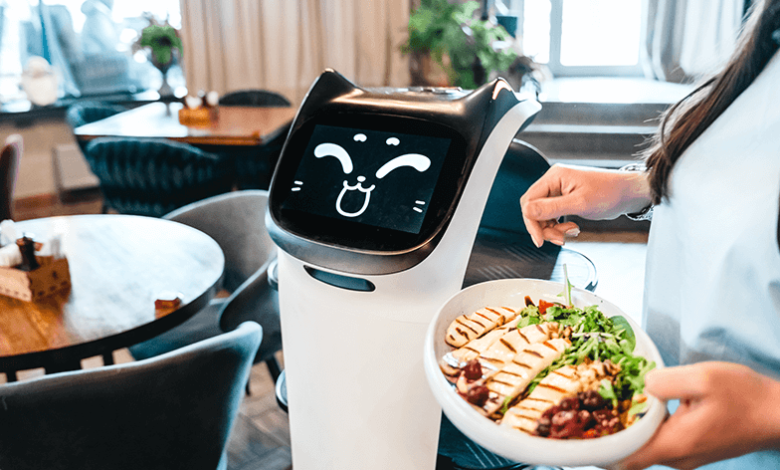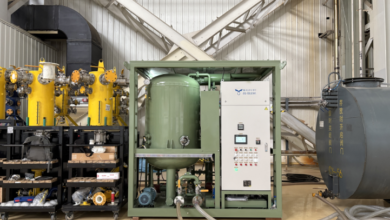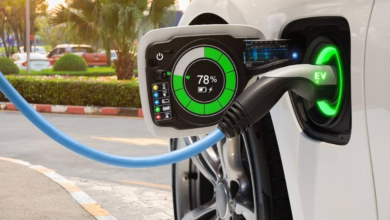The Smart Kitchen Revolution: Transforming the Food & Beverage Industry

The way we cook, store, and interact with food is changing rapidly, thanks to the emergence of the smart kitchen. This innovation isn’t just about high-tech gadgets; it’s about creating efficient, sustainable, and intelligent cooking environments. As part of the broader food and beverage industry, smart kitchens are reshaping everything from home cooking routines to restaurant operations.
What Is a Smart Kitchen?
A smart kitchen is a connected space that uses technology to streamline cooking, meal planning, and food storage. Devices in a smart kitchen often include Wi-Fi-enabled ovens, AI-powered refrigerators, voice-controlled assistants, and even robotic chefs. These tools communicate with each other and with users to optimize kitchen tasks, reduce waste, and improve convenience.
But smart kitchens go beyond convenience—they represent a shift toward healthier eating, better food safety, and more sustainable consumption habits.
See also: How AI Face Swap Technology Is Shaping Influencer Marketing
How Smart Kitchens Are Changing Home Cooking
For the everyday consumer, a smart kitchen offers a more organized and time-saving way to prepare meals. Imagine a fridge that alerts you when your groceries are about to expire or suggests recipes based on what’s inside. Or a smart oven that preheats itself when you’re on your way home.
Some smart appliances can also connect to mobile apps, allowing users to monitor cooking progress or set timers from anywhere. Voice assistants like Alexa or Google Assistant can help with hands-free recipe instructions, converting measurements, or setting multiple cooking timers—all without touching a screen or button.
This increased level of control and automation makes cooking less stressful and more enjoyable for busy families, professionals, and food lovers alike.
Smart Kitchens in the Food & Beverage Industry
The benefits of smart kitchens extend beyond home kitchens into commercial spaces. In restaurants, hotels, and catering businesses, smart kitchen technology improves both efficiency and food safety.
For instance, connected temperature sensors in refrigerators and freezers can automatically log data, helping kitchens comply with food safety regulations. Commercial ovens and cooktops can be programmed to maintain exact temperatures, reducing the risk of overcooked or undercooked food. Some restaurants even use artificial intelligence to forecast ingredient usage and minimize waste.
In addition, smart inventory systems can monitor supplies and place orders automatically when stocks run low. This reduces human error and keeps operations running smoothly—a major advantage in high-volume kitchens.
Health, Sustainability, and the Future of Food
One of the key drivers behind the growth of the smart kitchen market is the increasing demand for healthier, more sustainable lifestyles. Smart technology encourages people to eat at home more often, cook fresh meals, and avoid processed food. Nutritional tracking apps can sync with kitchen devices to help users stay on top of their health goals.
Meanwhile, food waste—a huge issue in the global food and beverage industry—can be significantly reduced through automation. Smart fridges, for example, notify users when products are nearing expiration, while apps can generate grocery lists based on real-time inventory.
The sustainability angle is especially attractive to eco-conscious consumers and businesses looking to reduce their environmental footprint.
Challenges and Considerations
Despite their many benefits, smart kitchens are not without challenges. The initial cost of smart appliances can be high, making them less accessible to budget-conscious consumers. There are also privacy and security concerns, as connected devices collect data that must be stored and protected.
However, as technology becomes more affordable and user-friendly, adoption is expected to rise. Manufacturers are also improving cybersecurity measures to address growing concerns about data privacy.
Conclusion
The smart kitchen is no longer a futuristic concept—it’s a present-day reality shaping the future of how we interact with food. From individual households to large-scale food service operations, smart kitchens are creating more efficient, healthier, and environmentally friendly ways to cook and consume.
For anyone in the food and beverage industry, now is the time to explore how smart kitchen technology can improve operations and enhance the dining experience. As the saying goes, the heart of the home—or the restaurant—is the kitchen. And today, that heart is getting smarter.





